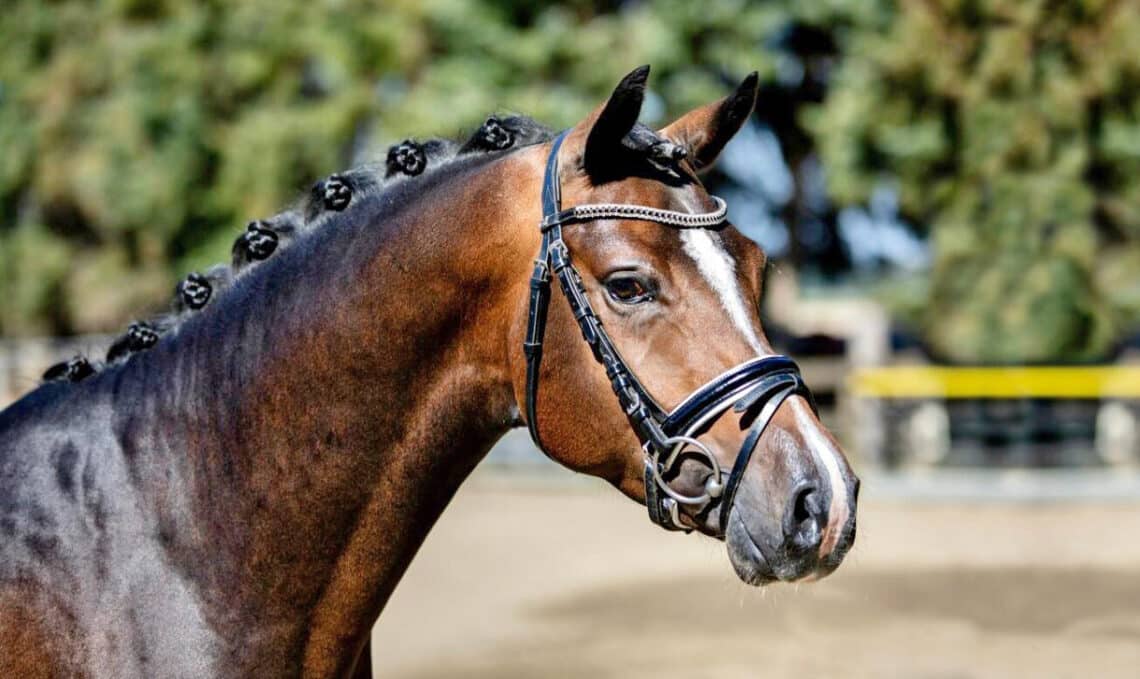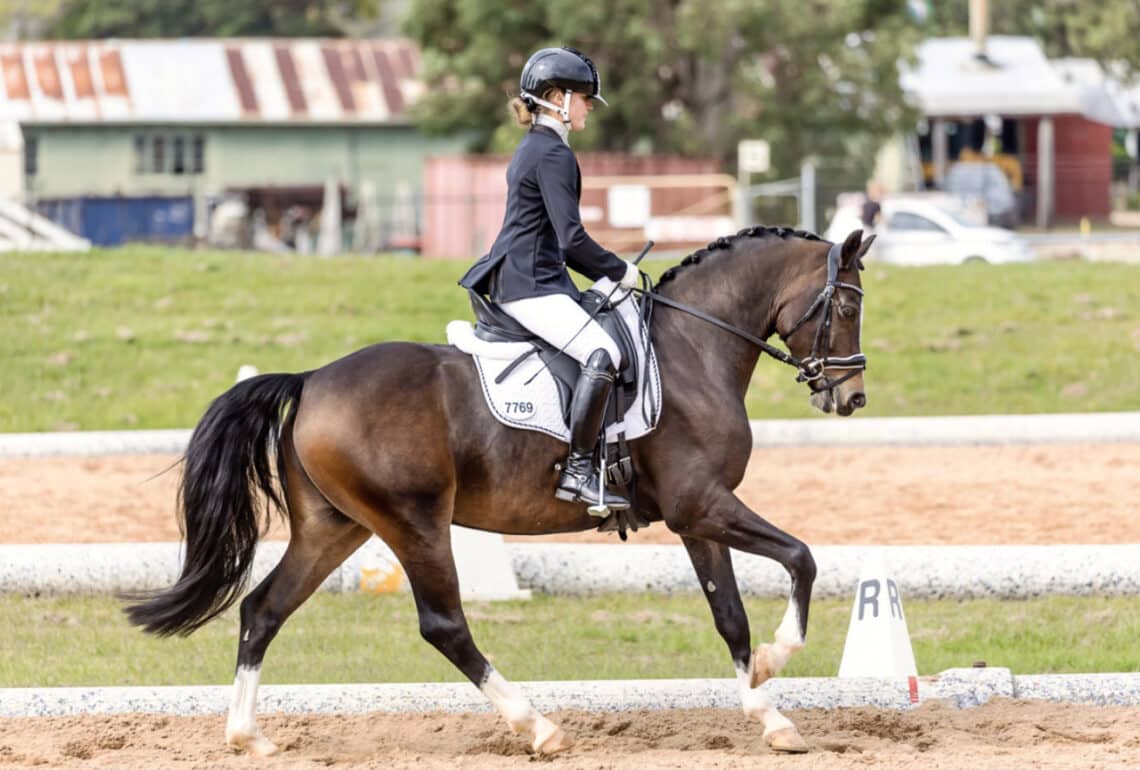
Searching for the one
Buying a dressage horse is not just a financial outlay. It’s an investment in your hopes and dreams, and knowing what to look for is critical, writes NICOLE TOUGH.
When we buy a dressage horse, we are not just buying a horse. We are investing our whole selves, our hopes, plans and dreams for the next decade or more; a horse that inspires us to jump out of bed each morning because we can’t wait to ride.
Looking for the right one can be extremely daunting, and as with any horse, there is always the risk of a broken bank and heart. All we can do is approach the task with the experience we have, and having a knowledgeable friend in our corner who has no ulterior motive can certainly assist with finding the right fit.
Start with your budget. What we want and what we can afford need to align.
If you don’t have an unlimited budget, the key to looking for your next equine partner is to know your strengths and vulnerabilities, and to be realistic about your ability at this exact point in time. Don’t buy the horse you think will be right in the future, because you still have to get to that future.
If you’re a beginner, the best option is the schoolmaster; the horse that’s been there, done that, and knows their way around the classroom. These are the generous types that won’t take advantage of rider imbalances and mistakes. Of course, schoolmasters are expensive and may be unrealistic for your budget. So, if you’re a beginner and cannot afford the schoolmaster, what do you look for? The best options will be eight to fourteen years old, their height dependant on rider requirements, and they will usually be energy savers with duller mouths and hard to offend. These horses need a kick to get going and to keep going, have non-reactive dispositions and won’t feed off rider nerves.

If you are looking for a talented horse to develop and take you through the levels, the three big things of most importance are conformation, movement and temperament.
Conformation wise, everyone has preferences. Certainly, an upright build will make it easier to appear uphill and for judges to award higher marks. Other than straightish legs and good feet, I prefer shorter necks and backs, shorter over longer legs, a clean gullet and big eye.
The quality of the three paces is vital, with faultless rhythm being non-negotiable. I look for a walk that swings and overtracks by about two hoofprints; a trot and canter that have a nice bend in the knees and good articulation of the hocks – and in the canter I also look for a good split in the distance between the hind legs. The trot doesn’t have to be sensational, because there is much we can build into this pace with good systematic training. Also of note, the bigger the walk, the harder it is to maintain rhythm in the collection.
Temperament is more important than talent. All the talent in the world is wasted in an unwilling horse. Horses that want to go, want to self-carry and are willing to work make the best dressage horses.
Other helpful tips include knowing what your non-negotiables are and what you can live with. For me, I can’t do fence walkers, or separation anxiety, but I can live with windsuckers. Escapees drive me crazy, and horse shy horses can be harder to warm up. Spooky horses need patient riders, and stubborn horses need stubborn riders.
Knowing your preferred energy type is extremely helpful too. Do you like horses that are self-motivated, or something you need to motivate? Is your preference for horses that tend to lean or horses that are fussier with contact? Some are hard to offend, and some are easily offended. Know your breed, age and height range requirements, and if you have a partiality for mares or geldings.
If you can’t afford a ridden and going super talent, then you might have to consider an unbroken youngster or a newly broken in three-year-old, where the temperament cannot be assessed. In this scenario, breeding plays a bigger part. Some bloodlines have riskier temperaments than others. The best people to ask about bloodline recommendations are trainers that work with many different horses.
Regardless of budget, vetting is always a good idea. This is a contentious issue, because there is no such thing as a risk free, perfect horse. Generally, the more miles the horse has done, the more wear and tear it will have. We ask the vet to explore the issues and then we can consider their management. Our vets do not have crystal balls and expecting them to look into the future and predict long term soundness is not reasonable.
There is simply no way to be truly sure that any horse is the right fit, but knowing all your likes, dislikes, wants and needs can tip the scales in your favour.



